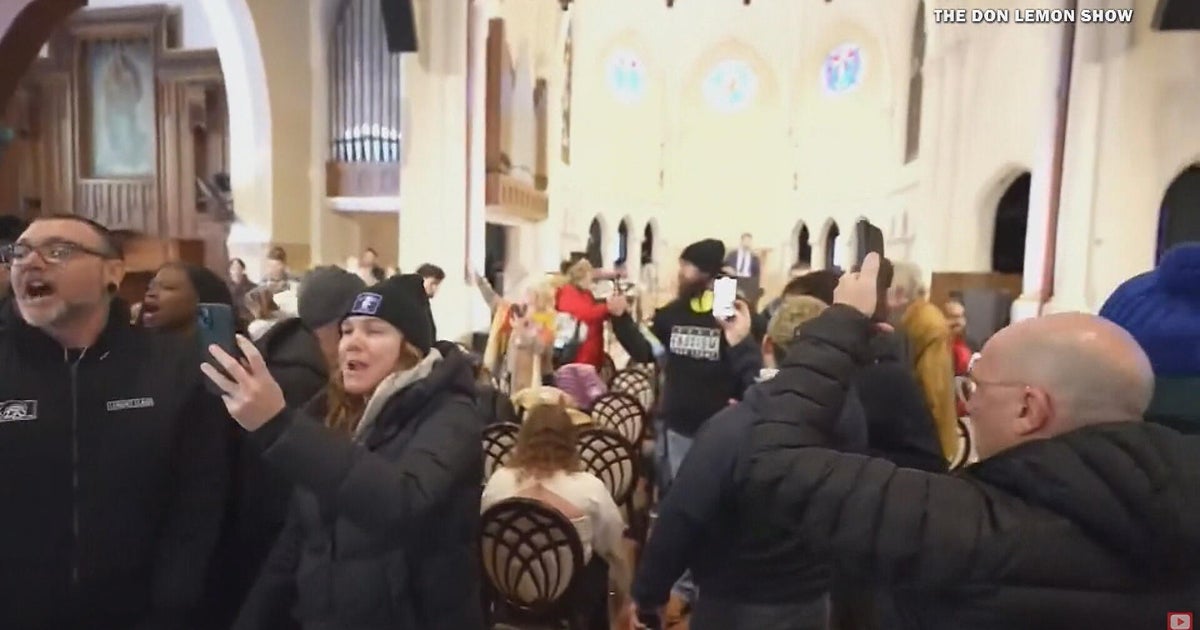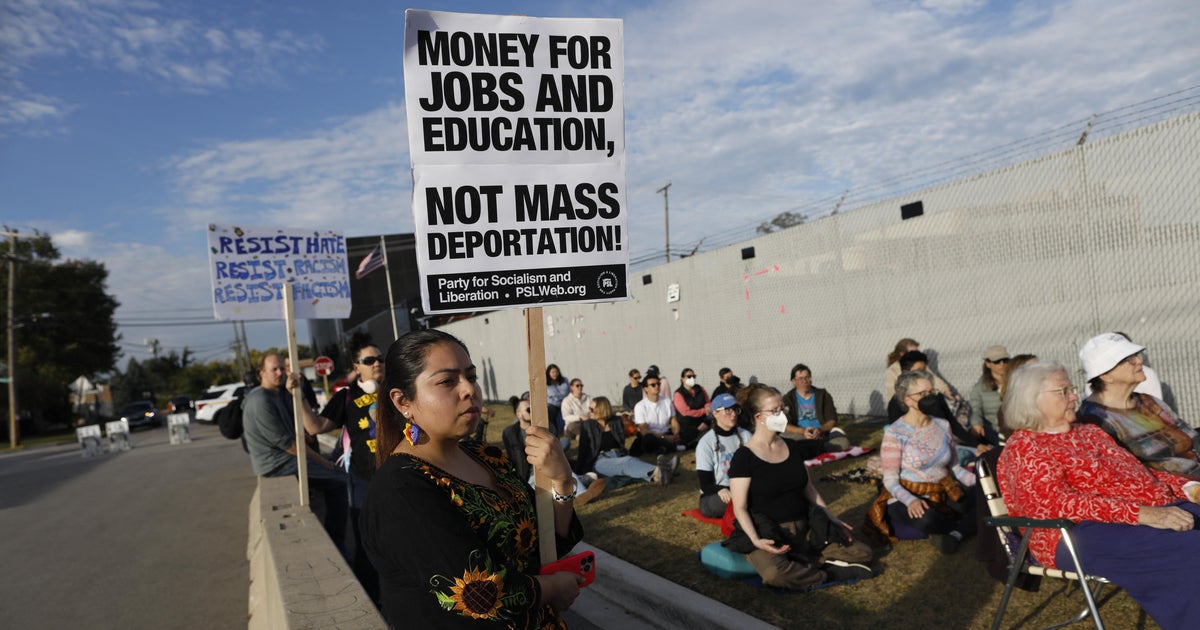D.C.'s chief judge accuses Justice Dept of "fostering confusion" with low-level pleas in January 6 prosecutions
Washington – The government's prosecution of those accused of participating in the January 6 assault on the Capitol has a host of critics that includes former President Trump and his allies, and on Thursday, they were joined by a surprising voice — D.C. Chief District Judge Beryl Howell.
Albeit for different reasons than Trump, Howell criticized prosecutors and accused them of "fostering confusion" among the public that could lead to the perception that the rioting and breach of the Capitol just over a year ago was a legitimate political protest, rather than a dangerous, deadly event.
"The government has opted...to charge the parading, demonstrating, or picketing charge," Howell said, as she sentenced defendant Brian Stenz for a Class B misdemeanor that amounts to protesting in a restricted area and carries a maximum penalty of a mere six months in prison. Making these deals for petty offenses — which often involve dismissing more serious charges — risks minimizing what happened, Howell argued.
Stenz, of Pennsylvania, was initially charged with the more serious counts of disorderly conduct and violent entry before striking a plea deal with the government. As part of the plea agreement, he admits he attended former President Trump's rally on January 6 before heading to the Capitol, ultimately making his way into an office belonging to Oregon Senator Jeff Merkley. Prosecutors allege Merkley's office was "ransacked" at the time Stenz entered.
Howell sentenced him to 14 days in prison, two months of home confinement and three years of probation.
It "bears repeating," Howell said, that the events of January 6, 2021 were not "legitimate political discourse," but an attack that "terrorized" members of Congress, their staffers, even children and the media.
Four people who were at the Capitol died on January 6: Ashli Babbitt, who was shot by a Capitol Police officer, and three others who died of separate "medical emergencies," authorities said at the time.
Capitol Police Officer Brian Sicknick, who was sprayed with a chemical substance during the riot, collapsed later and died from two strokes on January 7, the D.C. medical examiner's office said. And in the days and months after the attack, four more police officers who responded to the Capitol that day died by suicide.
The chief judge pressed Grace Albinson, of the U.S. attorney's office in Washington, D.C., on whether the government "accepts responsibility" for the confusion over the events of January 6.
Albinson suggested that the decision to offer the plea deal for the lesser charges wasn't her idea. It was, she said, the result of "policy decisions of management who are clearly not myself," and added, "I don't feel like I am the person to address it."
Justice Department attorney James Pearce said the Capitol breach "was a criminal offense...an act of domestic terrorism," but Howell didn't feel this answered her questions about why the department was striking these deals.
She also questioned a prosecutor handling the Thursday sentencing of defendant James Lollis, who pleaded guilty to the misdemeanor charge of unlawful picketing and acknowledged posting a "F** Antifa" sticker on a wall in the Capitol.
Is the Justice Department "fostering the view" that January 6 was a "legitimate political protest" by cutting unlawful picketing plea agreements with so many defendants, including Lollis, Howell asked. The prosecutor referred Howell to Pearce's earlier statement characterizing the rioting as domestic terrorism.
Howell, an Obama appointee, also criticized the increasingly widespread excuse given by a number of defendants that on January 6, they were simply swept up in the moment and did not intend to break any laws that day. A CBS News review of court transcripts and hearings shows more than a dozen defendants have argued they were "caught up in the moment" or "caught up in the crowd or fervor" on January 6, 2021. Lollis used a variant of that argument Thursday, telling the judge he was "following the energy" of the crowd.
Being "caught up" in a moment does not provide "absolution" for a crime, Howell said.
According to a CBS News review of court documents and hearings, approximately 150 of the more than 210 defendants who have so far entered guilty pleas admitted solely to the petty offense of illegally parading, demonstrating, or picketing in the Capitol.
Howell observed that many people think what happened on January 6 was a "protest" that got a little out of hand, she said in a second sentencing Thursday. She wondered, are prosecutors from the U.S. attorney's office "fostering that view" in making these low-level plea deals?
This was not the first time Howell has slammed the Justice Department's tactics over these cases, which currently number over 730. During the November sentencing of admitted rioter Glenn Croy, who also pleaded guilty to the petty offense at issue, Howell said the government's stance "puzzled" her, adding imposing a sentence in such a case "is not an easy task."
The U.S. attorney's office is not commenting beyond statements made in court and in case filings.




